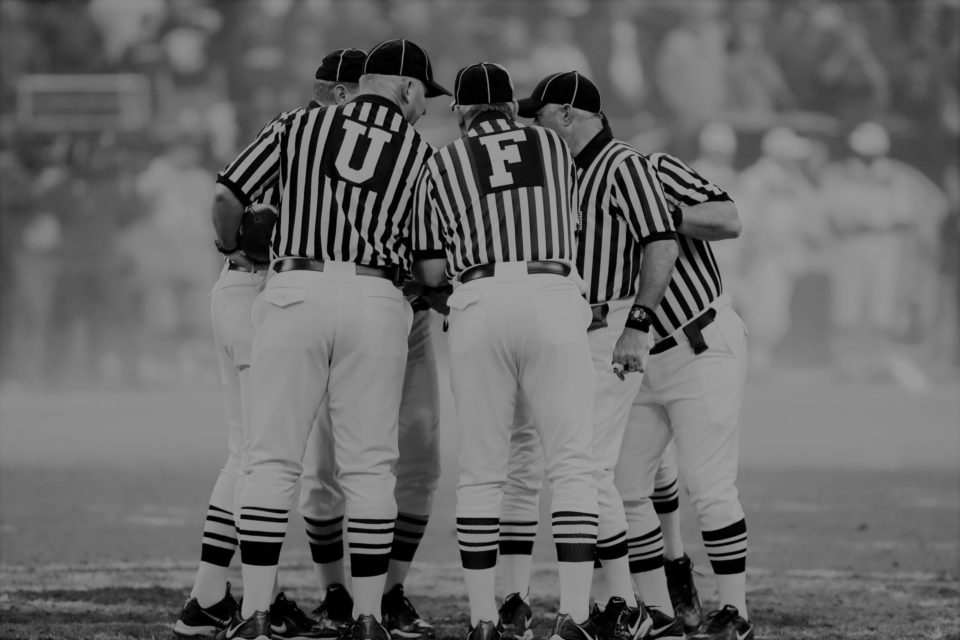Before a plaintiff can proceed as a representative of absent class members who have been similarly injured, the court must certify one or more classes under Rule 23 of the Federal Rules of Civil Procedure. The first of two main hurdles the plaintiff must clear is found in Rule 23(a), which sets forth four universal… Continue reading →
Before a plaintiff can proceed as a representative of absent class members who have been similarly injured, the court must certify one or more classes under Rule 23 of the Federal Rules of Civil Procedure. The first of two main hurdles the plaintiff must clear is found in Rule 23(a), which sets forth four universal requirements for class actions: numerosity, commonality, typicality, and adequacy of representation. Second, if the plaintiff seeks damages, she must demonstrate that the requirements of Rule 23(b)(3) are met—that common questions of law or fact predominate over individual inquiries, and that class treatment is the superior method for resolving the controversy.
On October 31, 2018, the United States Court of Appeals for the Seventh Circuit affirmed a district court’s certification of a class of consumers in Beaton v. SpeedyPC Software. The Court’s opinion in Beaton provides a straightforward guide on several of these factors for litigants seeking class certification.
The Facts
In 2012, the plaintiff in the case, Archie Beaton, began looking online for an at-home fix to solve his laptop’s performance problems. He discovered a free trial for SpeedyPC’s software, which offered to scan his computer and identify problems that affected the device’s performance. Beaton ran the initial scan, which reported that his computer was in bad shape and encouraged him to purchase a licensed version of the software to correct the problems. Beaton made the purchase, but when he clicked the “Fix All” button after running the scan, nothing happened. Feeling scammed, Beaton sued SpeedyPC in 2013 for breach of warranties and violation of the Illinois Consumer Fraud and Deceptive Business Practices Act on behalf of himself and a class of consumers who had similarly downloaded a free trial and thereafter purchased the full version of the software.
The district court certified the classes proposed by Beaton, and on appeal, the Seventh Circuit upheld the certification. The Seventh Circuit found all the requirements of Rule 23(a) and 23(b)(3) satisfied.
Commonality
To satisfy the commonality factor, there must be “one or more common questions of law or fact that are capable of class-wide resolution and are central to the claims’ validity.” This means that the court should look to see if the proposed class members have similar issues, which, if addressed, could help to resolve the litigation for the entire group. In this case, the court found commonality easily satisfied because of the numerous common questions amenable to class-wide resolution, including: whether the customers availed themselves of any implied warranties, what functions the marketing materials indicated that the software would perform, and whether the software did, in fact, perform those functions, whether SpeedyPC typically deals in goods related to this software, and whether a reasonable consumer would be deceived by the advertisements’ representations.
Typicality
The typicality factor asks whether the lead plaintiff’s claims “arise from the same events or course of conduct that gives rise to the putative class members’ claims.” For this requirement, the court noted that claims from individuals within the class may have slight factual variations, but typicality is still satisfied if the claims each “have the same essential characteristics.” The Seventh Circuit explained that Beaton and the other users of the software were exposed to the same messages and promises from SpeedyPC and the software operated in the same way on each computer. Thus, typicality was satisfied.
Adequacy
Adequate representation requires the named plaintiff to “be a member of the putative class and have the same interest and injury as other members.” According to the Seventh Circuit, SpeedyPC launched a “scattershot” attack on Beaton’s adequacy as a class representative, disputing his reason for purchasing the software, accusing him of deleting evidence, and even launching an attack on his credibility. However, with no evidence to support SpeedyPC’s claims, the Seventh Circuit found Beaton and his attorneys to meet the adequacy requirement of Rule 23(a).
Predominance
Rule 23(b)(3) requires a putative class representative seeking damages to demonstrate that common questions of law or fact predominate over differences within the class. The Seventh Circuit clarified this requirement, explaining that the predominance factor requires the court to assess the questions that are common to the class, and weigh their relative importance to the case. While not every issue must be capable of being resolved the same way for each member of the class, the court must look to see if the proposed class members’ claims “arise from a common nucleus of operative facts and issues.”
The Seventh Circuit concluded that, although some individualized inquiries might be needed, the individual issues were not significant enough to defeat a finding of predominance, especially since any outstanding questions could be resolved through streamlined mechanisms that would not harm the defendant’s due process rights. Given that the material facts in the claims against SpeedyPC arose from a common nucleus of operative fact, the Seventh Circuit found that the predominance requirement satisfied.
Of note, the Court found predominance even in plaintiff’s consumer fraud claims by following recent precedent and explaining that class actions need not resolve every element of liability in a single stroke to be certified. See Slip. Op. at 18-19 (citing Wal‐Mart Stores, Inc. v. Dukes, 564 U.S. 338, 350 (2011) (requiring resolution in “one stroke” of a “common contention” central to the common claim); Amchem Prods., Inc. v. Windsor, 521 U.S. 591, 625 (1997) (certain consumer fraud cases readily establish predominance); Suchanek v. Sturm Foods, Inc., 764 F.3d 750, 759-60 (7th Cir. 2014) (the fact that “[e]very consumer fraud case involves individual elements” does not preclude class actions); Pella Corp. v. Saltzman, 606 F.3d 391, 394 (7th Cir. 2010)).
Furthermore, the Court explained that, to the extent individual issues may be relevant, such issues could be established with affidavits, subject to the defendant’s right to challenge them. The Court further offered that SpeedyPC could challenge class members’ credibility by “obtain[ing] the testimony of a representative sample of the class members and, if necessary, present[ing] evidence contradicting statements found in particular affidavits.”
Superiority
Finally, the Seventh Circuit determined that a class action was the superior way to resolve the dispute pursuant to Rule 23(b)(3). Because common questions of law and fact predominated for the class, addressing the claims collectively would provide a more efficient use of the court’s resources. Moreover, the amount of damages to which each plaintiff would be entitled was so small (less than $100) that it would be unlikely for an individual to bring this case, since the $400 filing fee to initiate the case exceeded the damages. Finally, the Seventh Circuit emphasized that class action cases like this act as deterrents against “the proliferation of bogus products whose sticker price is dwarfed even by a court filing fee.”
While the Seventh Circuit’s opinion in Beaton v. SpeedyPC Software is useful for its discussion of the requirements for class certification, the court’s analysis concludes by reminding the litigants that class certification is “largely independent of the merits” and that a certified class can still “go down in flames” in subsequent proceedings. This reminder is key, as class certification is only one part of a class action. Due to the complexities of litigating class action cases, it is important to hire an experienced team of class action attorneys.
The attorneys at Goldenberg Heller & Antognoli, P.C. have extensive experience representing plaintiffs and defendants in complex class action litigation across the country. Feel free to contact us today at (800) 782-8492.







